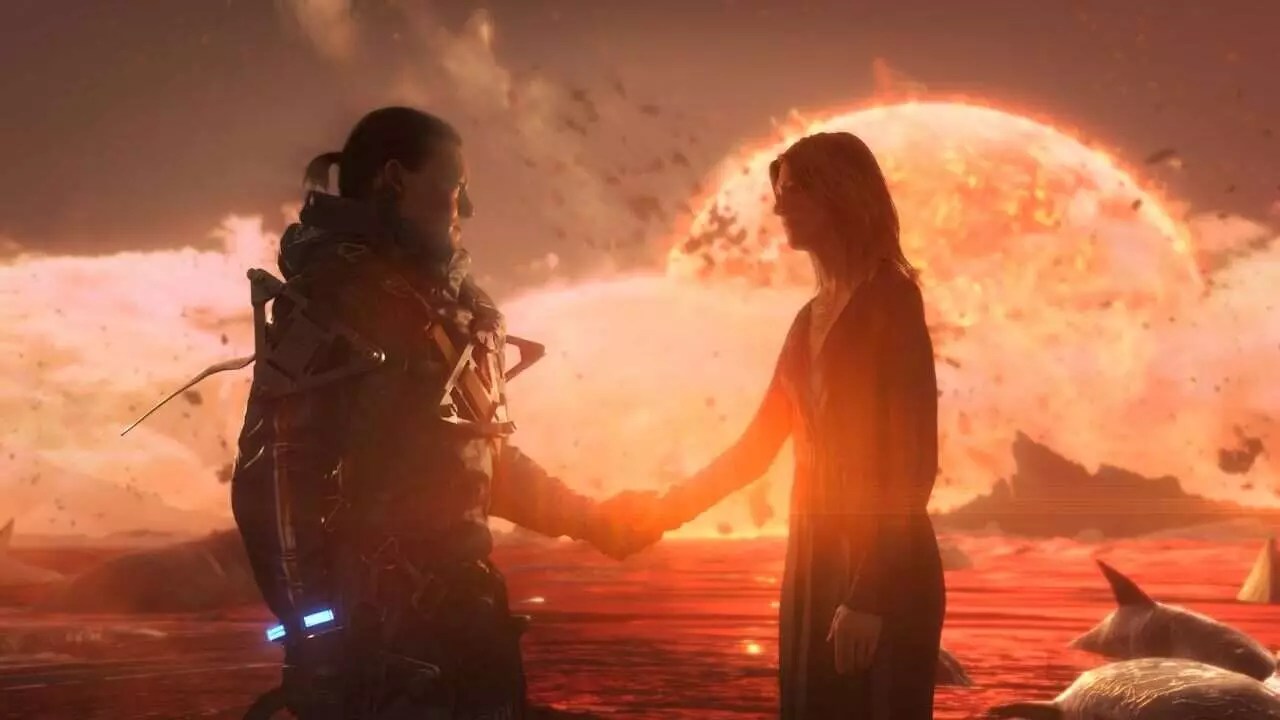The landscape of video game adaptations in cinema has long been fraught with challenges, often leaving fans wondering if their beloved narratives could truly translate to the silver screen. However, recent developments surrounding the *Death Stranding* movie may signal a shift in this paradigm. With Michael Sarnoski at the helm, fresh off the acclaim from *A Quiet Place: Day One* and his nuanced storytelling in *Pig*, there’s a strong sense of optimism that this adaptation may not only do justice to its source material but also elevate it.
Sarnoski’s appointment as both writer and director denotes a fierce commitment to authentically capture the surreal essence of Hideo Kojima’s original game—a quality often lost in prior adaptations. Sarnoski’s previous works demonstrate his ability to weave emotional depth with unique concepts, which could be crucial in navigating the intricacies of the *Death Stranding* universe, an impactful tapestry of isolation, connection, and existential dread.
The Imperative of Authenticity
Kojima’s vision transcends typical gaming experiences. He has openly expressed a desire for the film adaptation to carve its own path, potentially steering away from the pitfalls that have historically plagued video game movies. This principle of authenticity is not merely a marketing tactic; it speaks to the heart of the narrative, exploring themes of despair and resilience as humanity grapples with an apocalyptic catastrophe. The representation of the *Death Stranding* disaster promises to richly deepen the film’s emotional landscape, moving beyond casual action sequences to deliver a gripping exploration of human connections in a fractured world.
The peculiar mechanics of the game, such as strand mechanics, could creatively translate to the film format, providing viewers not just a story, but an immersive experience reflecting the human experience of isolation and the yearning for connection. Should Sarnoski effectively harness these elements, he has the potential to distinguish *Death Stranding* from existing adaptations, transforming it into a culturally significant piece of cinematic art.
Star Power and Expanding the Universe
As the world anticipates the film, excitement also brews over the upcoming sequel, *Death Stranding 2: On The Beach*. Featuring familiar faces and a host of new characters based on the likenesses of renowned actors and directors, its extravagant cast promises a multitude of voices and perspectives. Adding the likes of George Miller and Elle Fanning could introduce fresh dimensions and narratives to the established lore.
This symbiotic relationship between the game and the film could potentially enrich both experiences. The crossover appeal of the sequel may generate a more extensive audience for the film, and vice versa, crafting a comprehensive universe that engages both gamers and cinephiles alike. The intrigue surrounding characters like Heartman, inspired by visionary director Nicolas Winding Refn, suggests that the narrative will not shy away from ambitious explorations, potentially leading to groundbreaking storytelling on both mediums.
As anticipation grows, so does the hope that *Death Stranding* will redefine video game adaptations, inspiring future projects to pursue innovation over convention. The convergence of Sarnoski’s creative vision with Kojima’s narrative intricacies sets the stage for what could be a landmark film, instilling a renewed faith in the idea that gaming narratives can resonate powerfully beyond their original platforms.


Leave a Reply